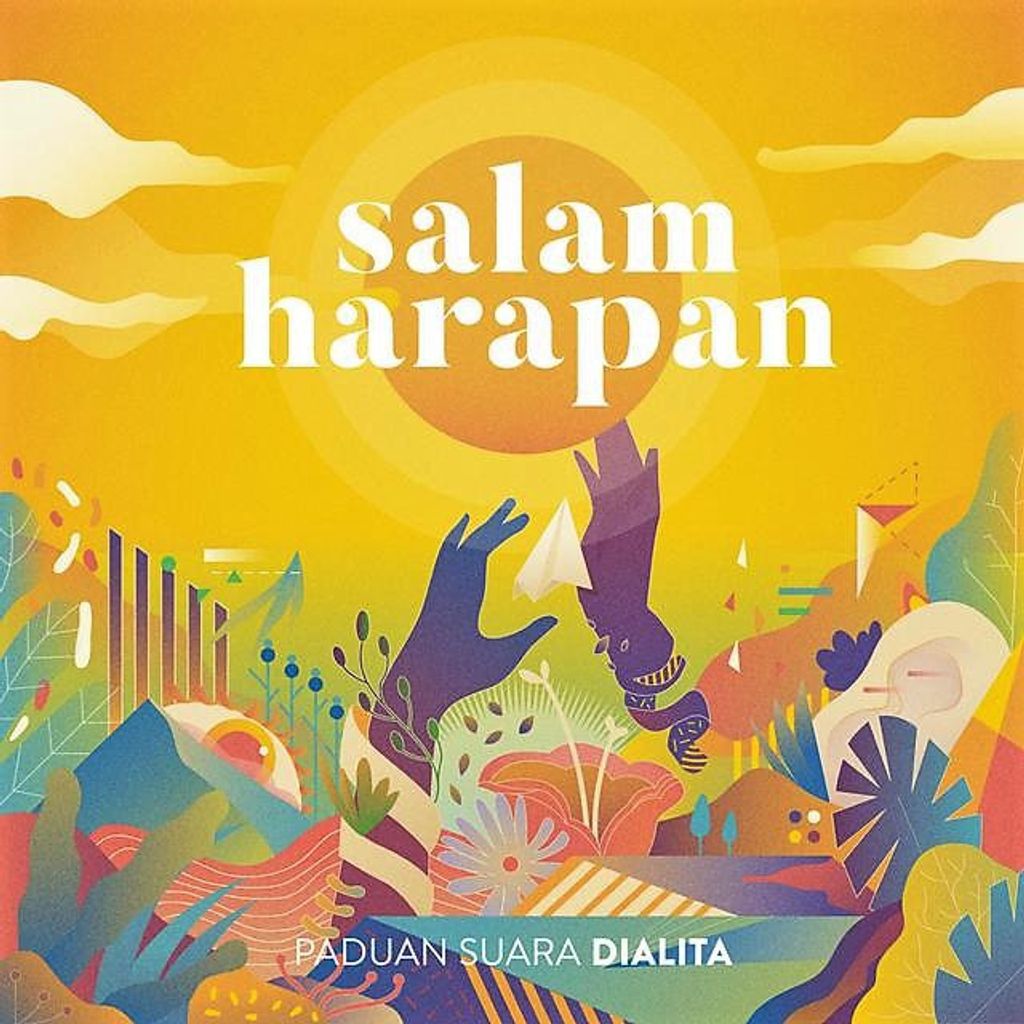
• Dialita "Salam Harapan" CD
BONITA HOUSE
CD with triplefold digipack version
Dialita stands for diatas lima puluh tahun (over fifty) in reference to the age of its members. On stage, the ladies brim with a cheerful disposition, as if their lives depend on it. And they probably did depend on it. The connecting thread between these ladies is that they are relatives of political prisoners of the 1965-1966 Indonesian pogrom; some of them were prisoners. Their sins, if there were any, weren’t worth the many trips to prisons, from Bukit Duri to the Plantungan camp. But it’s been more than 50 years, and they formed their choir more than a decade ago not as a means of deliberate activism but rather to maintain the bond.
Salam Harapan (Greetings of Hope) is their second album, the next chapter in their lives. It’s easy to write the word “career” instead of “lives”, but that would not seem right — their work has always been an extension of themselves, an avenue for their personal stories. Salam Harapan is wonderful. First, it is more of a “various artists” record, as the choir isn’t the only one singing. Rumah Bonita, the production label run by the musicians Bonita and Petrus Briyanto Adi, invited the choir into the house. Thanks to their collaboration, Salam Harapan exudes indelible warmth.
Second, the album is a document of the lyrics written by the prisoners at the time. What separates it from their debut album, Dunia Milik Kita (The World Is Ours), is that its lyrics were written by female prisoners. These lyrics weren’t set to music; they could’ve rotted in some drawer in someone’s house. Musically, Salam Harapan is a veritable feast. The influences stretch from jazz via folk rock to pop. Some songs are retreads from Dunia Milik Kita, like “Ujian” (A Test), sung by Kartika Jahja. It is unfortunately an inferior cut, as the first version is a collaboration of the pianist Leilani Hermiasih (who goes by the stage name Frau) and the choir — a haunting dirge.
